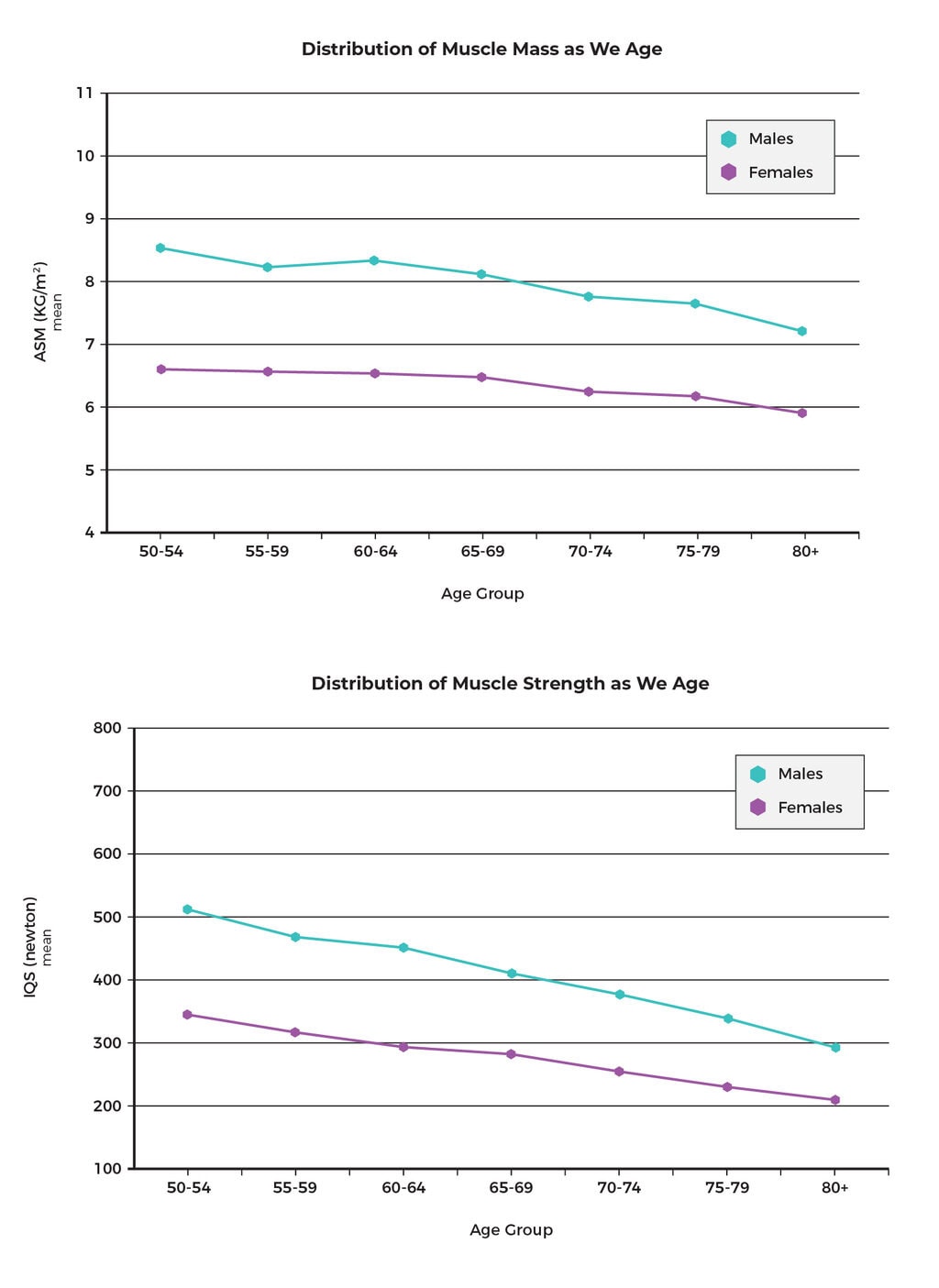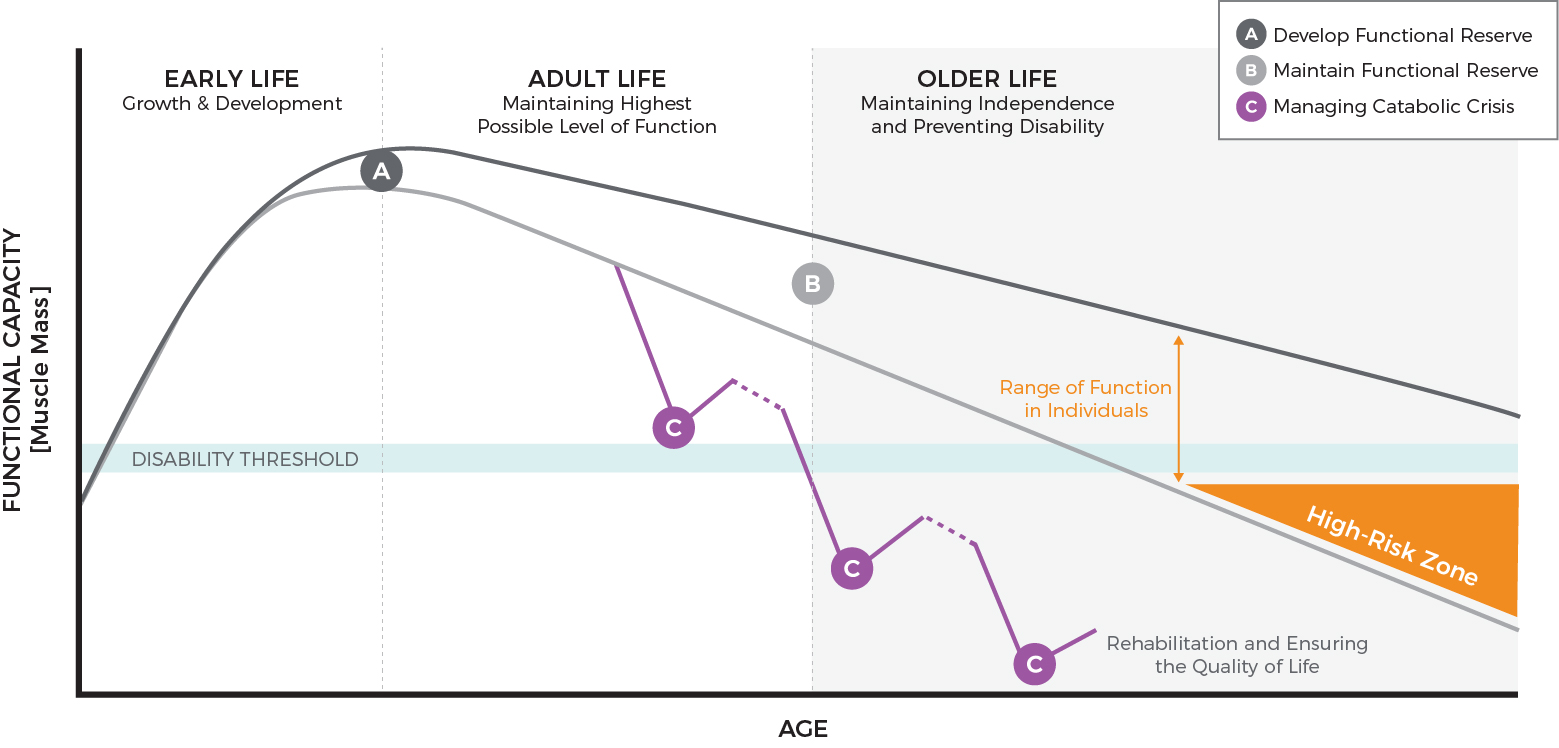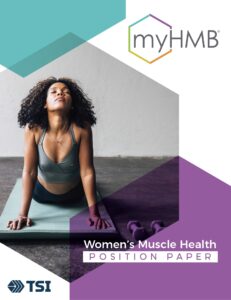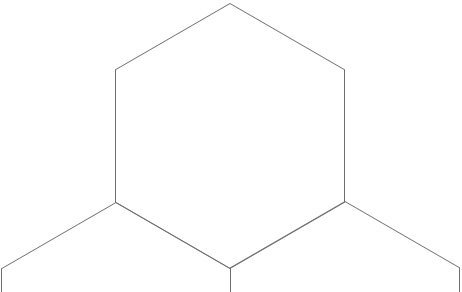14. Phillips SM, Chevalier S, Leidy HJ. Protein “requirements” beyond the RDA: implications for optimizing health [published correction appears in Appl Physiol Nutr Metab. 2022 May;47(5):615. doi: 10.1139/apnm-2022-0131.]. Appl Physiol Nutr Metab. 2016;41(5):565-572. doi:10.1139/apnm-2015-0550. View >
15. Smith-Ryan AE, Cabre HE, Eckerson JM, Candow DG. Creatine Supplementation in Women’s Health: A Lifespan Perspective. Nutrients. 2021 Mar 8;13(3):877. doi: 10.3390/nu13030877. PMID: 33800439; PMCID: PMC7998865. View >
16. Bouillon R, Marcocci C, Carmeliet G, et al. Skeletal and Extraskeletal Actions of Vitamin D: Current Evidence and Outstanding Questions. Endocr Rev. 2019;40(4):1109-1151. doi:10.1210/er.2018-00126. View >
17. Rathmacher JA, Pitchford LM, Stout JR, et al. International society of sports nutrition position stand: β-hydroxy-β-methylbutyrate (HMB). J Int Soc Sports Nutr. 2025;22(1):2434734. doi:10.1080/15502783.2024.2434734. View >
18. Fairfield WD, Minton DM, Elliehausen CJ, Nichol AD, Cook TL, Rathmacher JA, Pitchford LM, Paluska SA, Kuchnia AJ, Allen JM, and Konopka AR. Small-Scale Randomized Controlled Trial to Explore the Impact of beta-Hydroxy-beta-Methylbutyrate Plus Vitamin D(3) on Skeletal Muscle Health in Middle Aged Women. Nutrients 14: 2022. View >
19. Hashempour, Abolfazl & Hooshmand, Sara & Tabesh, Mastaneh & Alizadeh, Zahra. (2019). Effect of 6-week HMB (beta-hydroxy-beta methylbutyrate) Supplementation on Muscle Strength and Body Composition in Sedentary Overweight Women. Obesity Medicine. 15. 100115. 10.1016/j.obmed.2019.100115. View >
20. Park BS, Henning PC, Grant SC, et al. HMB attenuates muscle loss during sustained energy deficit induced by calorie restriction and endurance exercise. Metabolism. 2013;62(12):1718-1729. doi:10.1016/j.metabol.2013.06.005. View >
21. Hung, Wei & Liu, Tsung-Han & Chen, Chung-Yu & Chang, Chen-Kang. (2010). Effect of β-hydroxy-β-methylbutyrate Supplementation During Energy Restriction in Female Judo Athletes. Journal of Exercise Science & Fitness – J EXERC SCI FIT. 8. 50-53. 10.1016/S1728-869X(10)60007-X. View >
22. Tinsley GM, Moore ML, Graybeal AJ, et al. Time-restricted feeding plus resistance training in active females: a randomized trial. Am J Clin Nutr. 2019;110(3):628-640. doi:10.1093/ajcn/nqz126. View >
23. Flakoll P, Sharp R, Baier S, Levenhagen D, Carr C, Nissen S. Effect of beta-hydroxy-beta-methylbutyrate, arginine, and lysine supplementation on strength, functionality, body composition, and protein metabolism in elderly women. Nutrition. 2004;20(5):445-451. doi:10.1016/j.nut.2004.01.009. View >
24. R.Abdala , M . Gilligan , P. Pissani , E. Ruggiati , M. Sesta , M. Zanchetta, J. Zanchetta. Multicomponent physical training associated with HMB improves muscle mass and strength in postmenopausal women. Instituto de Diagnóstico e Investigaciones Metabólicas (IDIM). 2022. View >
25. Ogawa K, Sanada K, Machida S, Okutsu M, Suzuki K. Resistance exercise training-induced muscle hypertrophy was associated with reduction of inflammatory markers in elderly women. Mediators Inflamm. 2010;2010:171023. doi: 10.1155/2010/171023. Epub 2010 Dec 28. PMID: 21253481; PMCID: PMC3022197. View >






























